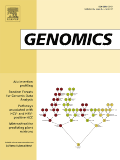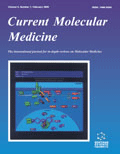
RNA
metrics 2024
Elevating Research in RNA and Beyond
Introduction
RNA is a premier journal in the field of molecular biology, published by COLD SPRING HARBOR LAB PRESS, PUBLICATIONS DEPT. With an impressive impact factor reflected by its Q1 status in the Molecular Biology category, this journal has established itself as an essential resource for researchers and professionals dedicated to understanding the role of RNA in biological processes. Spanning over two decades of impactful research from 1995 to 2024, RNA covers a broad spectrum of topics, including RNA biology, gene regulation, and therapeutic innovations. Researchers can access its extensive array of original research articles, reviews, and commentary, making it a vital conduit for new discoveries and methodologies in the field. With its high ranking within Scopus at Rank #115/410 and a 72nd percentile ranking in the domain of Biochemistry, Genetics, and Molecular Biology, RNA continues to advance the understanding of RNA and its critical contributions to life sciences.
Metrics 2024
 2.41
2.41 4.20
4.20 4.40
4.40 191
191Metrics History
Rank 2024
Scopus
IF (Web Of Science)
JCI (Web Of Science)
Quartile History
Similar Journals

CELLULAR SIGNALLING
Unlocking the Secrets of Signal TransductionCELLULAR SIGNALLING, published by Elsevier Science Inc, is a premier journal within the realm of Cell Biology, boasting an impressive Q2 category ranking as of 2023. With an ISSN of 0898-6568 and an E-ISSN of 1873-3913, the journal has established itself as a critical platform for advancing the understanding of cellular mechanisms and signal transduction pathways since its inception in 1989. Covering a vast array of topics in Biochemistry, Genetics, and Molecular Biology, it ranks notably at 87 out of 285 in the Scopus list, placing it in the 69th percentile among its peers. The journal serves as an invaluable resource for researchers, professionals, and students seeking high-quality, impactful studies that drive forward the field of cellular biology. While it operates under traditional subscription access, its highlights include rigorous peer-reviewed articles, reviews, and insights that continue to shape current scientific discourse.

GENOMICS
Uncovering the Secrets of DNA, One Study at a TimeGENOMICS is a prestigious journal published by Academic Press Inc Elsevier Science, dedicated to advancing the field of genetic research and molecular biology. With an impressive impact factor, this journal is recognized for its rigorous peer-review process and high-quality publications that cover a wide range of topics within the genomics discipline. Operating from the United States, GENOMICS has established itself as a vital resource for researchers, professionals, and students alike, standing at Q2 in the Genetics category according to the latest rankings. With a rich history dating back to 1987 and convergence extending to 2024, the journal highlights cutting-edge discoveries and methodologies, ensuring that its readership remains at the forefront of genetic advancements. Although currently not an open-access journal, articles published within its pages are often accessible through various academic platforms, enhancing worldwide reach and dissemination. For those engaged in the fields of biochemistry, genetics, and molecular biology, GENOMICS serves as an indispensable platform for impactful research and collaborative initiatives.

JOURNAL OF MOLECULAR MEDICINE-JMM
Pioneering Insights in Drug Discovery and Genetics.JOURNAL OF MOLECULAR MEDICINE (JMM) is a premier publication dedicated to advancing the field of molecular medicine, encompassing critical areas such as drug discovery, genetics, and biochemistry. Published by Springer Heidelberg in Germany, this influential journal has established its significance within the academic community, achieving an impressive Q1 ranking across multiple categories as of 2023, including Drug Discovery, Clinical Genetics, and Molecular Medicine. With a focus on publishing high-quality research and novel insights, JMM appeals to a diverse audience of researchers, professionals, and students passionate about the molecular underpinnings of health and disease. The journal, which has seen a convergence of relevant research spanning from 1976 to 2024, is instrumental in showcasing groundbreaking studies that push the boundaries of knowledge in molecular therapeutics and biomedical science. While it does not offer open access, the rigor of its peer-reviewed content ensures that each publication is a valuable addition to the scientific discourse surrounding molecular medicine. For comprehensive studies and reviews that highlight the intersection of molecular biology and clinical application, look no further than JOURNAL OF MOLECULAR MEDICINE.

DNA AND CELL BIOLOGY
Connecting Researchers to the Heart of BiologyDNA AND CELL BIOLOGY, published by Mary Ann Liebert, Inc, is a distinguished journal in the realms of cell biology, genetics, and molecular biology, holding a notable position in its Q3 and Q2 quartile rankings across multiple academic categories as of 2023. With an ISSN of 1044-5498 and an E-ISSN of 1557-7430, this journal has been a pivotal platform for the dissemination of cutting-edge research since its inception in 1990, extending its coverage through 2024. Situated in the United States, the journal offers high-quality peer-reviewed articles, exploring significant advancements in biological sciences while fostering interdisciplinary collaborations within the research community. Though it currently does not offer open access, subscribed institutions and individual readers benefit from its rich repository of knowledge. The journal's rigorous standards and impactful content make it an essential resource for researchers, professionals, and students alike, aiming to stay at the forefront of discoveries influencing DNA and cellular dynamics.

Biochimica et Biophysica Acta-Gene Regulatory Mechanisms
Connecting Biochemistry, Genetics, and HealthBiochimica et Biophysica Acta-Gene Regulatory Mechanisms, published by Elsevier, stands as a premier academic journal within the realms of biochemistry, biophysics, genetics, and molecular biology. With an impressive Q1 category ranking across several disciplines and a commendable Scopus percentile ranking of 89th in its field, the journal is a significant contributor to the scientific community, promoting groundbreaking research and discoveries from 2008 to 2024. Although it does not currently operate under an open access model, researchers accessing this journal will find in-depth articles that advance understanding of gene regulatory mechanisms and their implications for health and disease. The journal's location in the Netherlands enriches its global perspective, attracting a diverse range of submissions that reflect the cutting edge of science today. By publishing high-quality, peer-reviewed research, Biochimica et Biophysica Acta-Gene Regulatory Mechanisms continues to foster knowledge and innovation, making it an essential resource for researchers, professionals, and students alike seeking to delve deeper into the molecular underpinnings of life.

CURRENT MOLECULAR MEDICINE
Connecting Science to Medicine for a Healthier FutureCURRENT MOLECULAR MEDICINE is a pivotal journal fostering advancements in the interdisciplinary fields of molecular medicine, biochemistry, and genetics. Published by Bentham Science Publishers, this esteemed journal has been disseminating vital research findings since its inception in 2001 and is continuously dedicated to exploring the molecular basis of health and disease. With a focus on translational research, CURRENT MOLECULAR MEDICINE provides an invaluable platform for researchers, healthcare professionals, and students, making significant contributions to the understanding of molecular mechanisms and therapeutic strategies. With an ISSN of 1566-5240 and an E-ISSN of 1875-5666, the journal holds a commendable position within the scientific community, being ranked Q3 in Biochemistry and Molecular Biology and Q2 in Medicine (miscellaneous) as of 2023. This journal does not currently operate on an open access model but remains accessible through various institutional subscriptions. The multidisciplinary scope covering molecular biology to medicinal applications positions CURRENT MOLECULAR MEDICINE as an essential resource for those striving to meet the challenges of modern healthcare and biomedical research.

Non-coding RNA Research
Fostering Global Collaboration in RNA ResearchNon-coding RNA Research, published by KEAI PUBLISHING LTD, is a leading open-access journal dedicated to advancing the field of non-coding RNA, a critical component in the landscape of molecular biology and genetics. Established in 2016, this journal aims to provide a platform for the dissemination of high-quality research focusing on the roles, mechanisms, and therapeutic potentials of non-coding RNAs in various biological processes and diseases. With impressive Scopus rankings placing it in the top quartile for both Biochemistry and Medical Biochemistry, as well as notable standings in Genetics and Molecular Biology, Non-coding RNA Research continues to attract contributions from globally recognized experts. The journal's commitment to open access ensures broad visibility and engagement with cutting-edge discoveries, thereby fostering an inclusive scientific dialogue that enhances understanding and innovation in this rapidly evolving field. For researchers and scholars, the opportunity to publish in a Q1 ranked journal not only validates their work but also enhances its impact, making Non-coding RNA Research an indispensable resource for anyone interested in the intricate workings of non-coding RNA.

NAR Cancer
Advancing the frontiers of cancer research.NAR Cancer, published by Oxford University Press, is a pioneering open access journal established to advance the rapidly evolving field of cancer research. Since its inception in 2019, this journal has gained substantial recognition, achieving a prestigious Q1 ranking in both Cancer Research and Oncology categories as of 2023. With a focused objective to disseminate high-quality research, reviews, and insights into innovative cancer treatments and diagnostics, NAR Cancer serves as an essential platform for researchers, healthcare professionals, and students alike. The journal is accessible for all since it became open access in 2020, ensuring a global reach and impact. Positioned in the competitive landscape of oncology, with impressive Scopus rankings, it offers a unique opportunity for contributors to share their work with an engaged and interdisciplinary audience. With a commitment to excellence, NAR Cancer is dedicated to driving forward the understanding and management of cancer worldwide.

GENE
Unveiling Innovations in Genetics and MedicineGENE, an esteemed journal published by Elsevier, serves as a vital resource for researchers and professionals in the fields of genetics and medicine. With an ISSN of 0378-1119 and an E-ISSN of 1879-0038, this scholarly journal has been at the forefront of genetic research since its inception in 1976 and is set to continue until 2025. Situated in the Netherlands, GENE is recognized for its significant contributions, reflected in its Q2 ranking in both Genetics and Miscellaneous Medicine categories for 2023. This positioning within the Scopus rankings demonstrates its impact and relevance in a competitive field, where it holds the rank of #129 out of 347 in Genetics, placing it within the 62nd percentile. Although it does not offer open access options, GENE provides invaluable insight into contemporary genetic research, thereby fostering academic discussions and advancements. Researchers, professionals, and students alike will find GENE an essential platform for disseminating knowledge and exploring innovative developments in genetics and associated sciences.

MOLECULAR BIOLOGY
Exploring the Depths of Molecular MechanismsMOLECULAR BIOLOGY, published by PLEIADES PUBLISHING INC, serves as a vital repository for the dissemination of innovative research within the fields of biochemistry, genetics, and molecular biology. With an ISSN of 0026-8933 and an E-ISSN of 1608-3245, this journal has been a mainstay in the scientific community since its inception, embracing its deep historical roots from 1971 to the present. Recognized for its qualitative contributions, MOLECULAR BIOLOGY is ranked in the Q3 quartile for Biophysics and Q4 for Structural Biology, placing it among select journals in its domain. Researchers and students alike benefit from its rigorous peer-reviewed articles, which focus on all aspects of molecular mechanisms and interactions. The journal's inclusion in prestigious databases underlines its commitment to academic excellence. The editorial board is dedicated to fostering the sharing of influential findings, making it an essential resource for advancing knowledge and innovation in molecular biology.